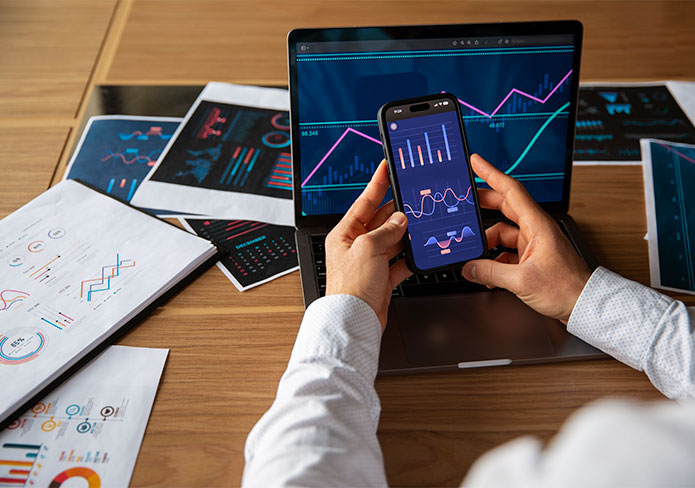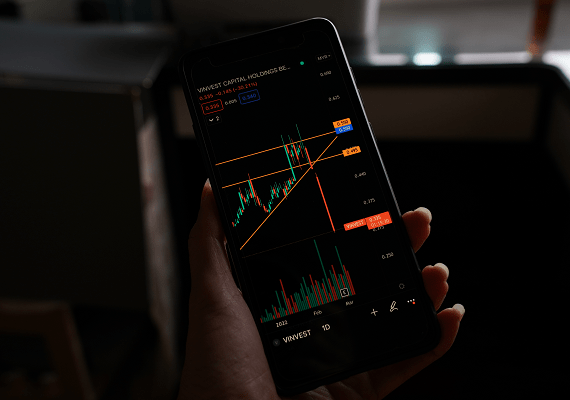

People often venture into forex or crypto looking to trade and invest, not knowing the difference between the two. Trading and investing can be similar in that they both aim to make a profit by buying first & then selling or selling first & then buying.
The covid-19 pandemic lead to an increase in online trading and stock market investments due to the several new retail investors who joined in to begin ‘trading’ online seeing as the majority of the planet was under intense lockdown and people could no longer access the workplace. Trading and investing can be highly profitable when executed correctly, whether you choose to practice one of the two solos or practice both at the same time, or opt to go through any one of the best forex brokers in Dubai, you still need to have a clear understanding of the differences between the two.
Trading can be referred to as the buying and selling of assets or financial instruments within a relatively short period of time. Individuals or forex brokers who practice trading often hold onto their assets or financial instruments for a few hours, days, weeks, or for a few short months. Some even hold on to their assets for just a few minutes before trading them off. Nowadays, it is quite easy and affordable to trade different assets/financial instruments. Trading allows you to earn returns through rising and falling asset prices by anticipating the outcome of an assets/financial instrument's price and generating your profit through that.
Investing differs from trading in that you buy and hold onto your assets or financial instruments for a relatively long period of time than you otherwise would when trading. This strategy is commonly known as the ‘buy-and-hold’ strategy.
With investing, your money is placed into assets such as EFTs, stocks, and many more with the anticipation that your investment will appreciate as time goes by. When it comes to investing, there is no set period of time for which you should hold onto your asset. Depending entirely on the investor's goal, one can hold onto an asset for a period of 1 - 30 years even. Investing has 3 main return channels: Compounding, Capital appreciation, and Rental income (Dividend).
Trading Vs Investing | Differences
Now that we have looked at the definitive differences between the two, let us dive in a little deeper to look at some of the key differences.
Assets & Financial Instruments
Trading offers both traditional assets and other financial instruments. Traditional assets may include Stocks, CFD trading, Forex, Commodities, and many more, while other financial instruments include Futures, Forwards, Options, etc. Forex and CFD trading has received a lot more attention in recent years. This is due to their significant leverage. By investing in a financial instrument you can retain the underlying financial asset for as long as you require, depending on your end goal. These assets include Stocks, Commodities, currency pairs (forex), and Cryptos.
As you know, trading is carried out within a shorter period of time, however, this does not reduce the risk involved. Even with its short time frames, the market can get quite volatile, increasing the risks involved. Risk can increase even further when you choose to leverage trading.
It is commonly believed that investments will grow over time, however, this is not always true. There are several outside factors that can determine the outcomes of your investment. Global inflation, conflict, and other circumstances can affect your long-term investment. These can affect it positively or negatively depending on the nature of the situation. Trading and investing can be highly profitable, but it’s worth noting that neither of them is ever 100% safe.
When it comes to trading, technical data is used to make an analysis. Traders may decide on their optimal entry and exit points using analytical data gathered through charts as well as practicing different trading strategies. Investors rely on fundamental data to make an analysis. Investors can acquire data points on cash flows, liabilities, net income, and more by studying company reports.
Trading and investing are smart and effective ways to increase your profits and make good money, however, several factors must be considered in order to make a profit. Stock trading in Dubai as CFDs are currently one of the most lucrative business ventures, drawing in several individuals and companies.
Trading allows you to make returns by buying when prices are low and selling at a higher price when prices climb. You can also make more money by selling at higher prices and buying at a lower price as prices drop, commonly known as short-selling.
Investing allows you to gain even higher returns with positive changes such as an increase in the dollar rate, and positive outside influence. You need to decide what your objectives are, as mentioned, trading is best for short-term goals, whereas investing is more suitable for long-term goals. Through Orient Finance, Stocks / Indices / Spot Metals / Commodities / ADRs / Futures / Cryptocurrencies are traded as CFDs / OTC Derivatives. Contact Orient Finance to know more.









